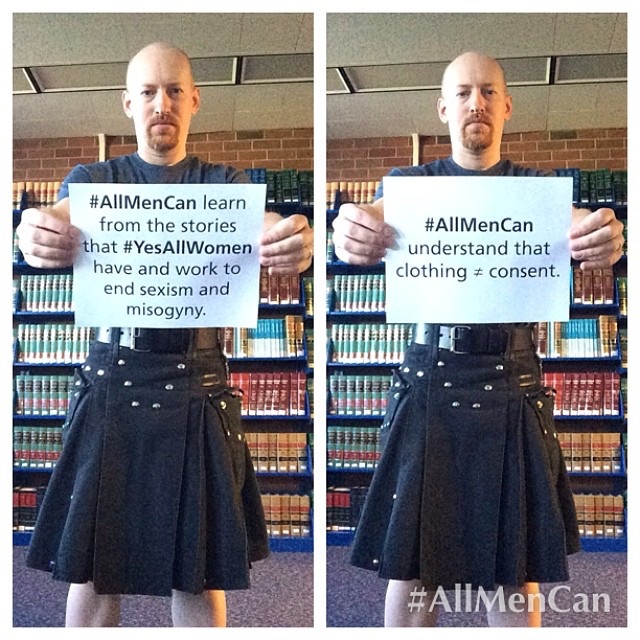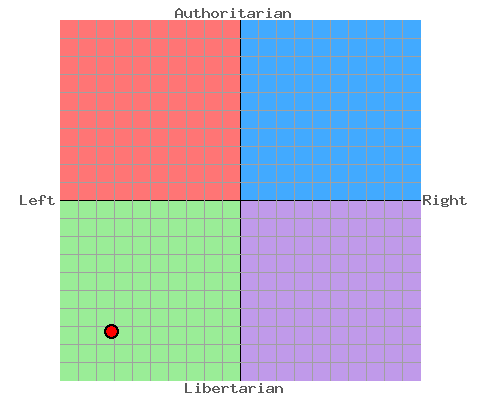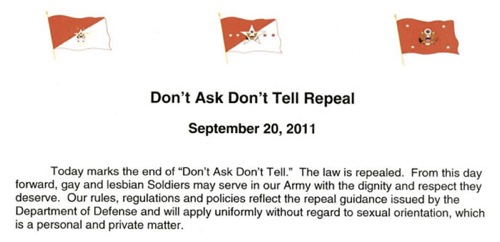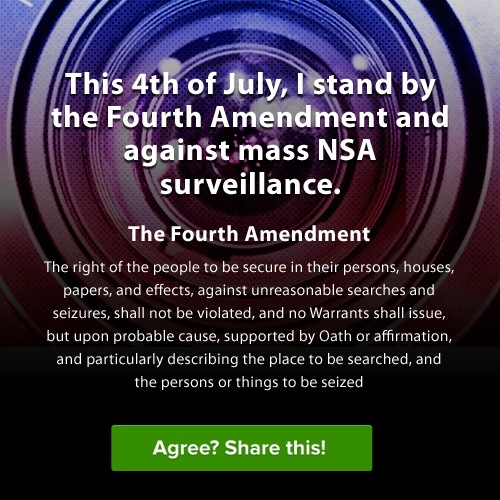About twice a week, or every three or four days, an African American has been killed by a white police officer in the seven years ending in 2012, according to studies of the latest data compiled by the Federal Bureau of Investigation. That number is incomplete and likely an undercount, as only a fraction of local police jurisdictions even report such deaths – and those reported are the ones deemed somehow “justifiable”.
…Even though white Americans outnumber black Americans fivefold, black people are three times more likely than white people to be killed when they encounter the police in the US, and black teenagers are far likelier to be killed by police than white teenagers.
…there are parallels between the violence of the past and what happens today. Images and stereotypes built into American culture have fed prevailing assumptions of black inferiority and wantonness since before the time of Jim Crow. Many of those stereotypes persist to this day and have mutated with the times. Last century’s beast and savage have become this century’s gangbanger and thug, embedding a pre-written script for subconscious bias that primes many to accept what they were programmed to believe about black Americans, whether they are aware of it or not.
…A Pew study last week found that 80% of black Americans polled, preoccupied by the killing of Brown at the hands of Officer Darren Wilson and its aftermath, felt that the case raised important issues about race. Only 37% of white respondents felt that way, due in part to de facto segregation and a majority status that does not require engagement with those outside their own group.
That racial isolation, combined with the negative messages embedded in American culture, create a lack in empathy that allows otherwise well-meaning people to turn away from the plight of fellow citizens. This implicit anti-black bias, present in varying degrees across races, extends to every sphere in American life, from harsher sentencing for black people in the criminal justice system to the likelihood that young men of color with clean records are less likely to be hired for jobs than white applicants with a criminal record.
Politics
Politically, I’m very liberal — about as far left as one can go without sliding into Libertarianism.
Post-Ferguson Decision Links
All originally posted to my Facebook account, but I need to post here more regularly (jeez, it’s been over a year now), and I feel strongly enough about the discussions I’m seeing in the aftermath of the Ferguson decision that this seemed a good way to get some movement here.
12 things white people can do now because Ferguson
Let’s talk about an active role for white people in the fight against racism because racism burdens all of us and is destroying our communities. And, quite frankly, because white people have a role in undoing racism because white people created and, for the most part, currently maintain (whether they want to or not) the racist system that benefits white people to the detriment of people of color. My white friends who’ve spoken out harshly against the murder of Michael Brown end with a similar refrain: What can I do that will matter in the fight against racism?
White people who are sick and tired of racism should work hard to become white allies.
In the aftermath of the murder of Michael Brown, may he rest in power, here are some ways for white people to become white allies who are engaged thoughtfully and critically in examining the situation in Ferguson and standing on the side of justice and equity. This list is a good place to start your fight to dismantle racial inequity and shine a light on the oppressive structures that lead to yet another extrajudicial killing of a black person.
Ferguson, goddamn: No indictment for Darren Wilson is no surprise. This is why we protest
The young people know about John Crawford III, a 22-year-old black man who died after an Ohio police officer shot him for carrying an unloaded BB rifle in the pet-food aisle of Walmart, whose mother misses her son and doesn’t understand why an Ohio grand jury did not indict the cops responsible for this death.
The young people know about Eric Garner, the 43-year-old black father of six who died after a New York police officer put him in an illegal chokehold, whose family awaits in tears of rage as a grand jury still has not indicted any of the cops responsible for that death.
They know about Darrien Hunt and Vonderrit Myers Jr, another unarmed teenager shot dead by a white law-enforcement officer with a gun. After this weekend, they know about 12-year-old Tamir Rice and 28-year-old Akai Gurley. They know about Amadou Diallo and Sean Bell; I am teaching them about Edmund Perry and the Edmund Pettus Bridge. But do they know about Ezell Ford in Los Angeles or Marlon Horton in Chicago and all the black and brown bodies gunned down by cops every day since that August afternoon when Darren Wilson killed Michael Brown after those 90 seconds on Canfield Drive? Does a grand jury of our supposed peers – an extreme version of the kind I sat on – mean to say that if the cops are never wrong, they never shall experience any penalty or consequences for their errors, especially when they prove fatal? Or do we just expect this and that death, do we just embrace this failure of humanity?
It’s Incredibly Rare For A Grand Jury To Do What Ferguson’s Just Did
According to the Bureau of Justice Statistics, U.S. attorneys prosecuted 162,000 federal cases in 2010, the most recent year for which we have data. Grand juries declined to return an indictment in 11 of them.
Ferguson isn’t about black rage against cops. It’s white rage against progress.
Protests and looting naturally capture attention. But the real rage smolders in meetings where officials redraw precincts to dilute African American voting strength or seek to slash the government payrolls that have long served as sources of black employment. It goes virtually unnoticed, however, because white rage doesn’t have to take to the streets and face rubber bullets to be heard. Instead, white rage carries an aura of respectability and has access to the courts, police, legislatures and governors, who cast its efforts as noble, though they are actually driven by the most ignoble motivations.
White rage recurs in American history. It exploded after the Civil War, erupted again to undermine the Supreme Court’s Brown v. Board of Education decision and took on its latest incarnation with Barack Obama’s ascent to the White House. For every action of African American advancement, there’s a reaction, a backlash.
As white people, it is NOT OUR JOB to tell black people how to react to centuries of still-ongoing oppression at the hands of white people. We all benefit from the institutionalized racism in this country. We don’t get to tell them how they’re doing Being Black (or Hispanic, or Asian, etc.) wrong. We don’t get to tell them they can get our attention, but only in ways we can ignore.
Thanks to Kirsten for pointing out the #AllMenCan tag. http://bit.ly/RGAGi1 #YesAllWomen

No such thing as “just metadata”
With all the recent news concerning the NSA’s surveillance programs (Prism et al.), one of the common defenses has been that for at least some of these programs (though not all), the government is “just” collecting metadata. For example, should the government access your email records, they might not have access to the content of the email, merely the associated data — like who you communicate with, when, how often, who else is included in the messages, and so on.
Techdirt has a good overview of why the “it’s just metadata” argument is a foolish argument to make — basically, there is a lot of information that can be derived from “just metadata” — but there’s also an MIT project called “Immersion” (noted in the TechDirt article, though I found it elsewhere) that gives a good visualization of what can be learned from a relatively limited dataset.
Immersion scans your Gmail account (with your explicit permission, of course), and then runs an analysis on the metadata — not the content — of your email history to create a diagram showing you you communicate with and the connections among them.
As an example, here’s my result (with names removed). This is an analysis of almost 52 thousand messages over nearly nine years among 201 separate contacts. Each dot is a single contact, the size of the dot is a measure of how often I’ve communicated with them, and the lines between them show existing relationships between those people (based on messages with multiple recipients).
In that image, there are two obvious constellations: the blue grouping at the top right are my family and long-time friends; the orange/green/red/brown grouping to the left are my Norwescon contacts. The scattering of purples and yellows are contacts that fall outside of those two primary groups. While there’s not much here of great surprise or import for me, I did already learn one thing of interest — apparently one of my old high school friends has had some amount of contact with one of my Norwescon friends (that’s the single line connecting the two constellations). Now, I have no idea what sort of relationship exists between them — it could be nothing more than my sending a group email that included one and accidentally including the other as part of the group — but some sort of relationship does, and that’s information I didn’t have before.
Now, my metadata is fairly innocuous. But for argument’s sake, suppose I was involved not with Norwescon, but with some other group of people that, for whatever reason, I wanted to keep quiet about. Maybe I’m involved in the local kink scene, and could face repercussions at my job or in my personal life if this became known. Maybe I’m having a gender identity crisis that I’m not comfortable publicly discussing, but have a strong internet-based support group. Maybe I’m part of Anonymous or some similar group, discussing ways to cause mischief. Maybe I’m a whistleblower, and these are my contacts. Maybe I’m a news reporter who has guaranteed anonymity for my sources — but suddenly, this metadata exposes not only who I communicate with, but when and how often, and if there’s a sudden ramp in communication between me and certain contacts in the weeks or months before I break a big story with a lot of anonymous sources, suddenly they’re not so anonymous any more. And, yes, of course, because no list like this would be complete without the modern boogeyman that is the government’s excuse for why this surveillance is necessary — maybe I’m a terrorist. (For the record, I’m none of the above-mentioned things.)
However, of that list of possibilities, terrorism (or, less broadly, investigation of known or suspected crimes) is the only one that the government should really have any interest in, and that’s exactly the kind of investigation that they should be getting warrants for. If they suspect someone, get a warrant, analyze their data, and build a case from there. But analyzing everyone’s data, all the time, without specific need, without specific justification, and without warrants? And then holding on to the data indefinitely, allowing them to troll through it at any time for any reason, whether or not a crime is suspected?
There’s a very good reason why terms like “Orwellian”, “Big Brother”, and “1984” keep coming up in these conversations.
Fight for the Fourth
The right of the people to be secure in their persons, houses, papers, and effects, against unreasonable searches and seizures, shall not be violated, and no Warrants shall issue, but upon probable cause, supported by Oath or affirmation, and particularly describing the place to be searched, and the persons or things to be seized.
This Far, No Further
I do my best to be open-minded about just about everything, and accepting of outlooks and beliefs other than mine. I may not understand why someone might believe the things they do (republicans, for instance)…but if that’s what they believe, that’s what they believe.
A few months ago, I hit the first time when I decided to “un-friend” a Facebook contact (the ultimate arbiter of relationships in today’s world) because of their beliefs. I could deal with this person being a gun nut, I could deal with them being an uncomfortably far-right Republican. What I couldn’t deal with was when they outed themselves as a Birther. At that point, it was obvious to me that there was simply no way I was ever going to connect to this person on any rational level. If someone’s at a point where they can take that level of over-the-top racism-poorly-disguised-as-conspiracy-theories seriously, then they’re not at a point where I can even pretend to be able to relate to them. So, off the friend list they went.
Just this week, I found a second, similar line, when I discovered that another contact was a vaccine denier. This I find even more offensive than the Birther nonsense. Birthers are crazy and probably racist, but at least their paranoid fantasies aren’t likely to hurt anyone. Anti-vaccine people, though…that can be harmful, and not just to the person, but to others, as they could potentially end up helping to spread an otherwise preventable disease. The “research” that the anti-vaccine crowd relies on has been debunked so thoroughly that it’s mind-boggling to me that anyone can continue to try to believe it, and when you factor in the very real chance that by not vaccinating themselves or their children, they could spread diseases that we at one point came very close to having essentially eradicated…. Enough is enough, and off they went.
This kind of thing doesn’t happen terribly often. I don’t mind disagreeing with people, I don’t mind people disagreeing with me, and in the right circumstances, calm, rational discussions of disagreements can be quite good. However, the line has to be drawn somewhere, and I’ve now found two places where I’m quite comfortable drawing that line.
Political Compass (the third)
This is the third time I’ve taken this test, though it’s been a few years — the first time was in 2002, the second in 2003, and now, nine years later, comes the third time. It seems I’m moving ever further towards that bottom left corner…
2002: -6.12/-5.90
2003: -6.62/-6.41
2012: -7.12/-7.33

Essentially
Part 1: The Event
Part 2: The Spin
Gawker: ‘It’s a Food Product, Essentially’: Fox News Starts Spinning Pepper Spray Cops
“I don’t think we have the right to Monday-morning quarterback the police,” O’Reilly says, “particularly at a place like UC Davis, which is a fairly liberal campus.” God forbid! We’d never want to question Lt. John Pike’s decision to generously and indifferently dust peacefully sitting protesters with pepper spray from only a few feet away. Especially given that Davis is, you know, a liberal campus! And, gosh, even if we were going to Monday-morning quarterback the police, shouldn’t we remember, as Megyn Kelly tells O’Reilly, that pepper spray is “a food product, essentially”?
Part 3: The Science
Scientific American: About Pepper Spray
…commercial grade pepper spray leaves even the most painful of natural peppers (the Himalayan ghost pepper) far behind. It’s listed at between 2 million and 5.3 million Scoville units. The lower number refers to the kind of pepper spray that you and I might be able to purchase for self-protective uses. And the higher number? It’s the kind of spray that police use, the super-high dose given in the orange-colored spray used at UC-Davis.
Part 4: The Humor
Product Reviews
Amazon: Defense Technology 56895 MK-9 Stream, 1.3% Red Band/1.3% Blue Band Pepper Spray
Accept no substitutes when casually repressing students: Whenever I need to breezily inflict discipline on unruly citizens, I know I can trust Defense Technology 56895 MK-9 Stream, 1.3% Red Band/1.3% Blue Band Pepper Spray to get the job done! The power of reason is no match for Defense Technology’s superior repression power. When I reach for my can of Defense Technology 56895 MK-9 Stream, 1.3% Red Band/1.3% Blue Band Pepper Spray, I know that even the mighty First Amendment doesn’t stand a chance against its many scovil units of civil rights suppression.
More than just pepper spray!!!: First, this baby has everything you would expect from Defense Technology brand pepper spray. It burns like hell. Whether you’re spraying directly into eyes or mouths – this will cause excruciating pain.
Second, and I know it’s not explicitly listed as one the uses on the can, but it’s also an amazing human arm de-linker. So if you have this gigantic public space and a dozen people are sitting there with their arms linked – this will really help in your effort to de-link those arms.
#MegynKellyEssentials
The #MegynKellyEssentials tag is worth watching on Twitter. It seems to have grown out of the comments to the Gawker post linked above. Some choice bits snagged from the Gawker comments:
Megyn Kelly on fire hoses: “It’s a sports beverage, essentially!”
Megyn Kelly on rubber bullets: “It’s a pencil eraser, essentially!”
Megyn Kelly on hand grenades: “It’s a Fourth of July firework, essentially! God bless America.”
Megyn Kelly on nightsticks: “It’s an olive branch, essentially!”
Megyn Kelly on waterboarding: “It’s a Neti Pot, essentially!”
Megyn Kelly on genital mutilation: “It’s a Brazilian wax, essentially!”
Megyn Kelly on zip-tie handcuffs: “It’s a Livestrong bracelet, essentially.”
Megyn Kelly on HIV: “It’s a common cold, essentially!”
Megyn Kelly on the rack: “It’s a chiropractor, essentially!”
Megyn Kelly on mustard gas: “It’s a hot dog condiment, essentially!”
Megyn Kelly on nuclear weapons: “It’s a microwave dinner, essentially!”
Megyn Kelly on sound weapons: “It’s a boom box, essentially!”
Occupy the Vote. Make a Difference. #occupythevote
Washington state is expecting a 47% turnout in this election — and people bitch and moan about how nothing ever changes.
I support the #occupy movement. But I’ve got a sneaking suspicion that if every one of the #occupy protesters actually voted, there are a lot of races that wouldn’t be as close as they end up being. If every #occupy protester told their friends to vote — and not just, “you should vote,” but “no, seriously, YOU SHOULD VOTE, we’re going to the polls/filling out our ballots now,” a lot of races wouldn’t even be close.
Yes, protests are important. Yes, we need to make our voices heard. But we also need to remember that shouting in the streets isn’t the only way to make our voices heard. Fill out your ballot. Put it in the mail. Put it in a drop box. If you don’t live somewhere where you can vote by mail, then take the hour out of your day to go to the polls.
But don’t ignore your right to vote, then bitch because nothing ever changes.
And don’t whine that “my vote doesn’t make a difference,” or “it’s just one vote.” Over the past couple decades, we’ve seen too many elections, national and local, where recounts were triggered because the final tally was so close. A few more votes — those tiny, insignificant, single votes — all of a sudden aren’t so minuscule.
DADT is done
From Ding, dong, DADT is dead! – Boing Boing:

On September 20, 2011, “Don’t Ask Don’t Tell” will officially become past tense. More: Washington Post. Here’s the document (PDF) memorializing the transition.


